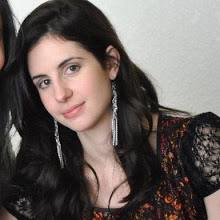November 7, 2008
It is ‘autumn break’ here and there are no classes so I’ve had ample time to read and write this week, and plan for the beginning of the second academic quarter.
My host mother‘s birthday was today, she turned 26. It still amazes me that a 26 year-old has two children and was married at 19. This is not just the case in Kyrgyzstan, I know that many cultures still marry young and have children at young ages. It is hard to shake my upbringing however, I still consider myself a ‘young’ adult and find it hard to imagine myself having two children at this point in my life.
I am still finding Three Cups of Tea to be extremely interesting and relevant for me. In fact, I’ve had an epiphany of sorts.
The book’s authors quote Helena Norberg-Hodge a writer and researcher who lived a village in Pakistan’s northern areas for 17 years. In her book Ancient Futures, she writes:
“I used to assume that the direction of ‘progress’ was somehow inevitable, not to be questioned. I passively accepted a new road through the middle of the park, a steel-and-glass bank where a 200-year-old church had stood… and the fact that life seemed to get harder and faster with each day. I do not anymore. In Ladakh I have learned that there is more than one path into the future and I have had the privilege to witness another, saner, way of life – a pattern of existence based on the co-evolution between human beings and the earth.”
“I have seen,” she says, “that community and a close relationship with the land can enrich human life beyond all comparisons with material wealth or technological sophistication. I have learned that another way is possible.”
I am also guilty of having Hodge’s initial presumption, that the course to development is fairly pre-determined and one-way. But, there obvious flaws in the system – for example, certain societal problems and damage done to the earth’s natural systems resulting from the current model of economic and civil growth.
I may be incorrect on this and I don’t have numbers, but I would say, some of the age-old social problems such as adultery, abuse of substances, rape and theft exist on a much smaller scale here than in the United States. This is but one example of a society that is considered ‘under-developed’ getting it right where we are not.
And, as far as abuse of the earth’s systems goes, the ecological ‘footprint’ of Kyrgyzstan is that of a 3-month old compared to America’s Ronald McDonald size 12. That’s not to say if the Kyrgyz could take two showers a day and go to the mega-store to buy bananas from Ecuador and beef from Brazil that they would not. Looking at China and India’s example, they probably would. But, if we look at what they’re doing now – buying locally grown produce and small portions of meat, using resources like water and electricity sparingly and walking or car-pooling (albeit out of necessity), we could find some genius in that.
So here’s to learning about what the Kyrgyz can teach us! And, to the expansion of my job description :)
Cheers from Kyrgyzstan…
Thursday, November 13, 2008
Subscribe to:
Post Comments (Atom)

No comments:
Post a Comment